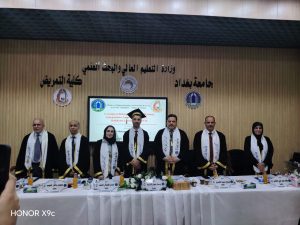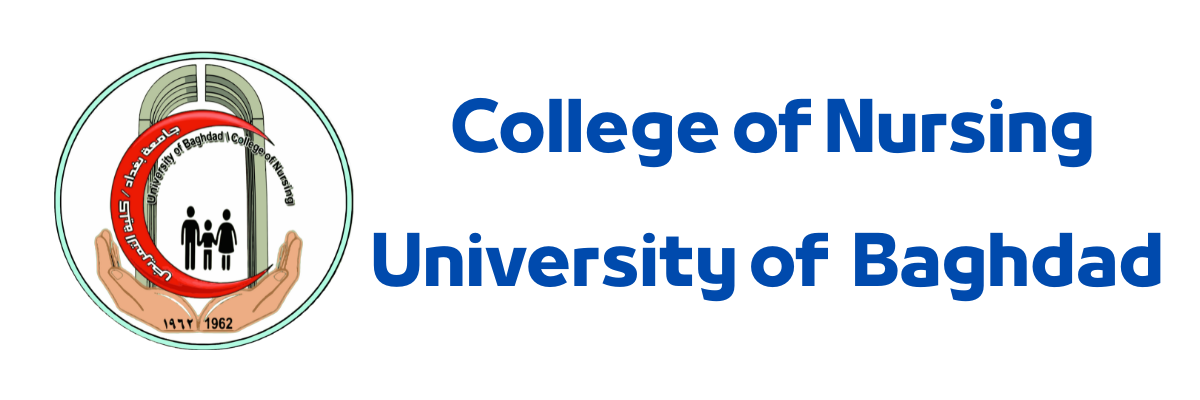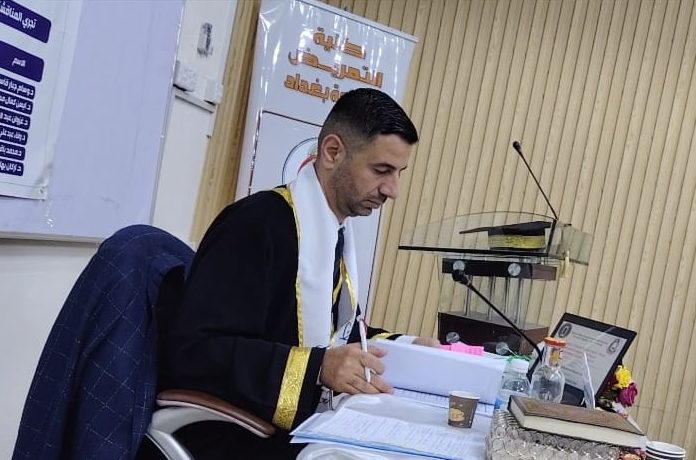The College of Nursing at the University of Baghdad discussed the doctoral thesis of researcher Ali Mohammed Hussein Ali, entitled “Screening for type 2 diabetes among administrative staff in primary health care centers in the city of Mosul” under the supervision of Prof. Dr. Erkan Bahloul Naji in the great hall of the college.
The study aimed mainly at early detection and assessment of the prevalence of type 2 diabetes among the segment of administrative staff, with special emphasis on individuals who did not show any symptoms and had not been diagnosed with the disease before.
Of the total sample of employees who thought they were healthy, they were actually diagnosed as diabetic or pre-diabetic based on 13.6 The results of the study revealed important figures, showing that 69.7 percent of employees with diabetes and 16.7 percent of employees without diabetes had blood glucose tests. The results also showed that the percentage of pre-registered diabetics amounted to %.
The researcher concluded that adhering to the principles of prevention, especially for people who are overweight, and following a healthy lifestyle by exercising and modifying dietary habits are crucial factors that contribute to reducing the onset of the disease and help in its early detection.
The study recommended the need to activate periodic screening programs for the early detection of diabetes among employees and citizens in general, to reduce the burden of the disease and its serious complications. The researcher received an “A” grade from the discussion committee.
This research is a vital step towards achieving the Sustainable Development Goals, as early detection of chronic diseases such as diabetes not only contributes to enhancing the health and well-being of individuals, the third goal of good health, but also enhances the productivity of the workforce and reduces the long-term economic burden on the health system, ensuring a healthier and more sustainable society.










